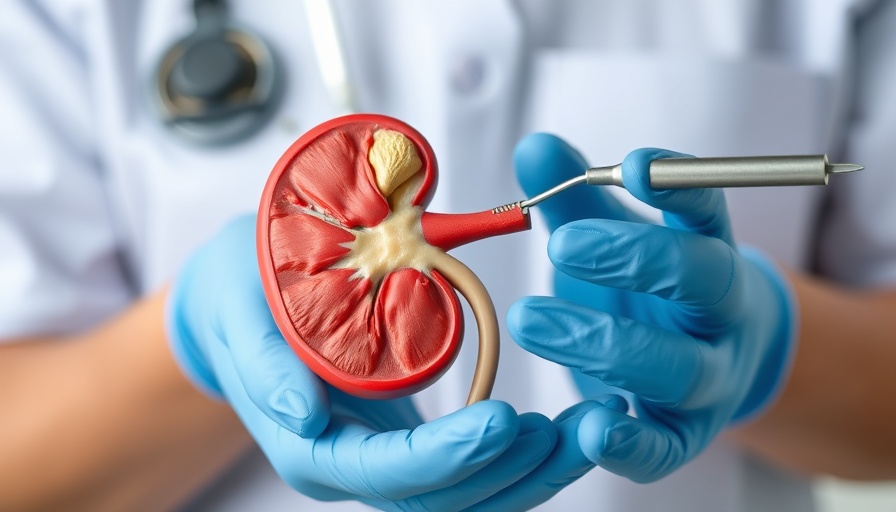
Understanding Ostomy-Related Acute Kidney Injury (AKI)
Acute Kidney Injury (AKI) is a serious condition that can occur following various medical procedures, including those involving ostomies—a surgical procedure often necessary for patients with conditions like colorectal cancer or inflammatory bowel disease. Recent studies have shown a worrying correlation between ostomies and an increased risk of AKI, potentially leading to higher mortality rates and significant long-term health challenges.
Examining the Link Between Ostomy and Mortality
A groundbreaking study has illuminated the dangers associated with ostomy-related AKI, concluding that patients who experience this complication face a markedly higher risk of mortality. This underscores the importance of vigilant monitoring and preventative strategies in clinical settings. The implications of these findings resonate deeply within healthcare systems, reinforcing the necessity for robust care protocols for individuals post-ostomy.
What Makes Ostomy Patients Vulnerable to AKI?
Patients undergoing ostomy surgery often experience a variety of physiological changes that may predispose them to AKI. Factors such as dehydration, electrolyte imbalances, and alterations in blood flow can significantly increase the likelihood of kidney damage. In addition, the use of certain medications during recovery—such as those that contribute to kidney stress—can exacerbate the risk.
Potential Challenges and Risk Factors
Beyond the surgical intervention itself, there is a complex interplay of environmental and biological factors that affect recovery. Issues such as limited access to post-operative care, inadequate follow-up monitoring, and lack of patient education about recognizing early symptoms of AKI may lead to detrimental outcomes. A comprehensive understanding of these factors is crucial in developing more effective patient care strategies.
Strategies to Mitigate AKI Risk in Ostomy Patients
Caring for ostomy patients requires multidisciplinary approaches. Recommendations for decreasing the risk of AKI include optimizing fluid intake to combat dehydration, employing regular renal function monitoring, and educating patients about the signs and symptoms of kidney distress. By integrating these strategies into standard care practices, healthcare providers can help improve outcomes for individuals with ostomies.
Future Insights and Innovations in Ostomy Care
As we move forward, the integration of technology into ostomy care offers promising avenues for reducing AKI risk. Innovations in wearables, apps for symptom tracking, and telehealth consultations can empower patients and clinicians alike. These tools facilitate timely interventions and promote active patient engagement in their health.
Recognizing the Broader Impact on Health Systems
The findings surrounding ostomy-related AKI extend beyond individual patient care, highlighting wider health system challenges. Increased mortality rates not only affect patient families but also stress healthcare resources. Policymakers and health organizations must grapple with these realities as they allocate resources and develop systems-focused interventions in post-surgical care.
Inspiring Change Through Continued Research
As studies continue to unveil the complexities of AKI in ostomy patients, the need for ongoing research is more pressing than ever. Future investigations should aim to better understand the biological mechanisms at play and assess the effectiveness of new interventions. Collaboration among researchers, clinicians, and patients will be critical to advancing knowledge and improving treatment outcomes.
Call to Awareness: A Shared Responsibility
As we reflect on the insights gained from recent studies, it’s crucial to recognize that awareness around ostomy-related AKI is a shared responsibility among healthcare professionals, patients, and their families. By fostering a culture of education and open communication, we can work together to mitigate risks and enhance the safety and well-being of ostomy patients.
 Add Row
Add Row  Add
Add 




Write A Comment